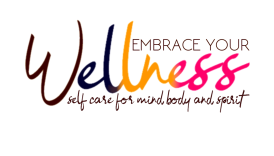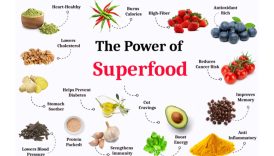Beyond Medicine: the Holistic Approach of Healthier Life Pharmaceuticals

Introduction to Holistic Health Approach
Understanding Holistic Health
Holistic health takes into account the whole person, including their physical, mental, emotional, and spiritual aspects. Rather than focusing solely on treating symptoms of a disease, this approach emphasizes overall well-being. For instance, individuals experiencing anxiety may benefit not only from therapy but also from lifestyle changes, such as nutrition or exercise.
- Beyond Medicine: the Holistic Approach of Healthier Life Pharmaceuticals
- Introduction to Holistic Health Approach
- Understanding Holistic Health
- Benefits of Holistic Approach
- The Role of Nutrition in Holistic Health
- Importance of Balanced Diet
- Impact of Nutritional Choices
- Mind-Body Connection in Holistic Healing
- Managing Stress for Overall Well-being
- Techniques for Mind-Body Balance
- Incorporating Alternative Therapies for Health
- Acupuncture and Traditional Chinese Medicine
- Benefits of Yoga and Meditation
- Natural Supplements for Holistic Wellness
- Herbal Remedies and their Uses
- Vitamins and Minerals for Optimal Health
- Physical Activity and Holistic Lifestyle
- Types of Exercise for Holistic Well-being
- Benefits of Regular Physical Activity
- Holistic Approach to Mental Health
- Counseling and Therapy Options
- Self-Care Practices for Mental Wellness
- Environmental Factors in Holistic Health
- Importance of Clean Living Spaces
- Impact of Environmental Toxins on Health
- Spiritual Well-being and Holistic Health
- Practices for Spiritual Growth
- Mindfulness and Its Benefits
- Holistic Health for Longevity and Aging
- Anti-aging Strategies
- Tips for Healthy Aging
- Integrating Holistic Practices into Daily Routine
- Creating a Holistic Health Plan
- Maintaining Consistency in Holistic Lifestyle
- XII. Holistic Health and Disease Prevention
- Strategies for Preventive Care
- Boosting Immunity through Holistic Approach
- XIII. Holistic Approach in Traditional Medicine Systems
- Ayurveda and Holistic Healing
- Herbalism and Natural Remedies
- XIV. Holistic Health Education and Awareness
- Promoting Holistic Practices
- Resources for Holistic Health Information
- XV. Conclusion: Embracing Holistic Approach to Healthier Life
- Recap of Holistic Health Principles
- Commitment to Holistic Well-being
Benefits of Holistic Approach
Adopting a holistic health approach can lead to numerous benefits, including:
- Enhanced overall well-being: Individuals often report feeling more balanced.
- Better stress management: Holistic practices foster mindfulness, reducing stress.
- Improved relationships: Connecting with others through shared wellness practices can strengthen bonds.
Overall, holistic health encourages individuals to take an active role in their wellness journey, cultivating a lifestyle that promotes lasting health.
The Role of Nutrition in Holistic Health
Importance of Balanced Diet
A balanced diet is a cornerstone of holistic health, providing the body with essential nutrients it needs to function optimally. It’s not just about calories; it’s about nutrients that support physical vitality and emotional balance. For example, including a rainbow of fruits and vegetables can enhance mood and energy levels.
- Key Components of a Balanced Diet:
- Fruits and Vegetables: Rich in vitamins and antioxidants.
- Whole Grains: Provide sustained energy.
- Lean Proteins: Essential for muscle repair and immune function.
- Healthy Fats: Support brain health and hormone regulation.
Impact of Nutritional Choices
Nutritional choices significantly affect overall health. Eating a diet high in processed foods can lead to fatigue and irritability, while nourishing meals can uplift the spirit. For instance, one might notice improved focus and mood after switching from sugar-laden snacks to wholesome options like nuts and berries. When individuals recognize how their food choices influence their well-being, they are more likely to make conscious decisions for healthier outcomes.
Mind-Body Connection in Holistic Healing
Managing Stress for Overall Well-being
The mind-body connection plays a vital role in holistic healing, particularly when it comes to managing stress. Stress can manifest physically and emotionally, leading to issues like anxiety and fatigue. For instance, after a long day at work, many find that a short meditation or deep breathing can significantly lower stress levels, promoting a sense of calm.
- Benefits of Stress Management:
- Improved sleep quality
- Enhanced focus and productivity
- Stronger immune response
Techniques for Mind-Body Balance
Achieving mind-body balance is essential for overall health. Here are some effective techniques:
- Meditation: A daily practice can bring clarity and tranquility.
- Yoga: Combines physical movement with mindfulness, promoting flexibility and mental calmness.
- Progressive Muscle Relaxation: Helps to release tension in the body systematically.
By incorporating these techniques into daily routines, individuals can foster a deeper connection between their mind and body, leading to improved well-being. Ensuring that both aspects are nurtured is a significant step toward holistic health.
Incorporating Alternative Therapies for Health
Acupuncture and Traditional Chinese Medicine
Acupuncture, a key component of Traditional Chinese Medicine (TCM), has been gaining popularity as an alternative therapy in holistic health. This ancient practice involves inserting thin needles into specific points on the body to balance the flow of energy, or “Qi.” Many individuals report significant pain relief and improvements in various health issues, such as chronic headaches and digestive problems.
- Benefits of Acupuncture:
- Reduces chronic pain
- Improves sleep patterns
- Alleviates stress and anxiety
Benefits of Yoga and Meditation
Beyond acupuncture, yoga and meditation are powerful tools for enhancing holistic health. Yoga seamlessly combines physical postures with mindfulness, promoting flexibility, strength, and relaxation. Personal experiences often show how a simple yoga session can lift one’s mood and provide clarity for the day ahead.
- Advantages of Yoga and Meditation:
- Enhances physical and mental flexibility
- Encourages emotional balance
- Reduces symptoms of anxiety and depression
Incorporating these alternative therapies into daily life not only enhances physical well-being but also fosters a deeper connection to one’s self, crucial for achieving holistic health.
Natural Supplements for Holistic Wellness
Herbal Remedies and their Uses
In the realm of holistic wellness, herbal remedies have long been celebrated for their healing properties. Traditional herbs like echinacea and ginger can support immune function and digestive health, respectively. Many individuals turn to these natural options, often with impressive results. For instance, someone suffering from seasonal allergies may find relief using stinging nettle, a potent herbal ally.
- Popular Herbal Remedies:
- Echinacea: Boosts immune system function.
- Turmeric: Reduces inflammation and supports joint health.
- Chamomile: Promotes relaxation and aids in sleep.
Vitamins and Minerals for Optimal Health
In addition to herbs, vitamins and minerals play a crucial role in maintaining overall health. For example, a deficiency in vitamin D can lead to fatigue and weakened immune response. Individuals who include a balanced array of supplements may notice significant improvements in their energy levels and mood.
- Essential Vitamins and Minerals:
- Vitamin C: Supports immune health.
- Magnesium: Vital for muscle and nerve function.
- Zinc: Aids in healing and enhances immune defense.
Incorporating these natural supplements into daily routines can effectively bolster holistic wellness and encourage a life of vitality.
Physical Activity and Holistic Lifestyle
Types of Exercise for Holistic Well-being
Incorporating physical activity into a holistic lifestyle is essential for both mental and physical health. Various types of exercise can support overall well-being. For instance, cardio exercises such as running or cycling boost heart health, while strength training enhances muscle and bone density. One personal favorite is hiking, which not only gets the body moving but also allows for connection with nature.
- Popular Exercise Types:
- Yoga: Combines flexibility, strength, and mindfulness.
- Pilates: Focuses on core strength and stability.
- Dance: A fun way to express oneself and improve coordination.
Benefits of Regular Physical Activity
Engaging in regular physical activity offers numerous benefits that extend beyond the physical. Consistent exercise can help reduce stress, improve sleep quality, and boost mood. Individuals often find that a simple workout can serve as a powerful mood lifter, enhancing emotional resilience.
- Key Benefits:
- Enhanced cardiovascular health
- Improved mental clarity and focus
- Greater overall energy levels
By prioritizing physical activity, individuals can embrace a holistic lifestyle that nurtures the body, mind, and spirit, leading to enhanced well-being across all aspects of life.
Holistic Approach to Mental Health
Counseling and Therapy Options
A holistic approach to mental health underscores the importance of exploring various counseling and therapy options. Traditional therapy can be highly effective, but integrating complementary methods can enhance outcomes. For example, while cognitive-behavioral therapy (CBT) addresses thought patterns, art therapy can provide an expressive outlet for emotions.
- Common Therapy Options:
- Talk Therapy: Discussing thoughts and feelings with a trained professional.
- Group Therapy: Sharing experiences with others in a supportive environment.
- Mindfulness-Based Therapies: Combining traditional techniques with mindfulness practices.
Self-Care Practices for Mental Wellness
In addition to professional help, self-care practices play a vital role in maintaining mental wellness. Simple actions such as journaling or taking mindful walks can create profound shifts in emotional health. Personally, I’ve found that dedicating a few minutes daily to meditation helps ground me and enhances overall clarity.
- Effective Self-Care Practices:
- Meditation and Mindfulness: Promotes relaxation and reduces anxiety.
- Creative Outlets: Engaging in art, music, or writing nourishes the soul.
- Physical Activity: Even a brief workout can boost mood.
By embracing a holistic approach that includes both professional guidance and self-care, individuals can cultivate lasting mental wellness and resilience.
Environmental Factors in Holistic Health
Importance of Clean Living Spaces
Environmental factors significantly impact holistic health, particularly the quality of our living spaces. A clean, organized environment can promote mental clarity and emotional stability. For instance, decluttering a cluttered room often leads to a sense of relief and focus. Simply keeping common areas tidy can create a sanctuary that encourages relaxation and well-being.
- Benefits of Clean Living Spaces:
- Reduces anxiety and stress
- Enhances productivity and focus
- Promotes a healthier respiratory system
Impact of Environmental Toxins on Health
Conversely, exposure to environmental toxins—such as chemicals in cleaning products or air pollutants—can have detrimental effects on health. These toxins may lead to respiratory issues, allergies, or other chronic conditions. For example, switching to natural cleaning products not only reduces toxin exposure but can also improve overall indoor air quality.
- Common Environmental Toxins:
- Volatile Organic Compounds (VOCs) from paints and solvents
- Pesticides used in gardening and farming
- Heavy metals found in certain household items
By understanding the significance of clean environments and the potential risks posed by toxins, individuals can make informed choices that support a holistic approach to health, fostering both physical and mental well-being.
Spiritual Well-being and Holistic Health
Practices for Spiritual Growth
In holistic health, spiritual well-being is a key component that enriches the mind, body, and soul. Engaging in practices for spiritual growth can significantly enhance one’s overall quality of life. Activities like journaling about personal beliefs or participating in community service can foster a deeper connection to oneself and others. Personally, I’ve found that volunteering not only brings me joy but also instills a sense of purpose.
- Effective Practices for Spiritual Growth:
- Meditation: Helps cultivate inner peace and awareness.
- Gratitude Journaling: Reflects on positive aspects and leads to a more uplifting mindset.
- Nature Walks: Connects one to the natural world, fostering gratitude and awareness.
Mindfulness and Its Benefits
Mindfulness is a powerful tool in nurturing spiritual well-being. By being present in the moment, individuals often experience a profound sense of clarity and connection to their inner selves. For example, practicing mindfulness during daily activities—like eating or walking—can enhance appreciation for life’s simple pleasures.
- Benefits of Mindfulness:
- Reduces stress and anxiety
- Improves emotional regulation
- Enhances overall well-being
Overall, integrating spiritual practices and mindfulness into daily routines cultivates a more enriched and balanced life, reinforcing the importance of spiritual health in a holistic approach.
Holistic Health for Longevity and Aging
Anti-aging Strategies
As we journey through life, adopting holistic health practices becomes vital for longevity and aging gracefully. Anti-aging strategies often encompass a combination of proper nutrition, physical activity, and stress management. For example, incorporating antioxidant-rich foods like berries and dark leafy greens can help combat oxidative stress, often associated with aging.
- Effective Anti-aging Strategies:
- Maintain a Balanced Diet: Focus on whole foods that nourish the body.
- Stay Hydrated: Drinking plenty of water supports skin elasticity and overall health.
- Engage in Regular Exercise: Supports cardiovascular health and mobility.
Tips for Healthy Aging
In addition to anti-aging strategies, there are several tips to promote healthy aging. Taking time for self-care and connecting with loved ones can enhance emotional well-being. Personally, I’ve noticed that consistently practicing yoga and mindfulness has greatly improved my flexibility and mental clarity as I age.
- Practical Tips for Healthy Aging:
- Prioritize Regular Check-ups: Keeping preventive health measures in place is essential.
- Cultivate Strong Relationships: Socializing can boost mental health.
- Keep Learning: Engaging in lifelong learning sharpens the mind and fosters curiosity.
By embracing these holistic health practices and strategies, individuals can enhance their longevity and well-being, allowing them to enjoy life to the fullest at any age.
Integrating Holistic Practices into Daily Routine
Creating a Holistic Health Plan
Integrating holistic practices into daily life begins with creating a personalized health plan that addresses physical, mental, and spiritual well-being. This could be as simple as drafting a weekly schedule that includes time for exercise, balanced meals, and mindful practices. For instance, I’ve found success in setting aside specific times for yoga and meditation, which enhances my overall sense of balance.
- Components of a Holistic Health Plan:
- Nutrition Goals: Plan meals rich in whole foods.
- Exercise Routine: Include various forms of physical activity, from cardio to yoga.
- Mindfulness Practices: Schedule daily moments for meditation or journaling.
Maintaining Consistency in Holistic Lifestyle
Consistency is key in nurturing a holistic lifestyle. Small, manageable changes often yield the best results. For example, starting with a 10-minute daily mindfulness practice can gradually lead to longer sessions as it becomes a habit. Using tools like a habit tracker or journal can help monitor progress and keep motivation high.
- Tips for Consistent Holistic Practices:
- Set Realistic Goals: Start small to build confidence.
- Create Reminders: Use alarms or sticky notes to coax habits into your daily routine.
- Reflect and Adjust: Regularly assess your plan and make necessary adjustments.
By thoughtfully creating a holistic health plan and maintaining consistency, individuals can foster an enriching lifestyle that nurtures their well-being on all levels.
XII. Holistic Health and Disease Prevention
Strategies for Preventive Care
Holistic health emphasizes a proactive approach to disease prevention, focusing on maintaining wellness rather than just treating illness. Developing strategies for preventive care can help individuals identify potential health risks early on. For example, regular health screenings and check-ups are essential in catching issues before they escalate. I’ve personally felt empowered by scheduling annual physicals, using them as an opportunity to discuss my overall well-being.
- Effective Preventive Care Strategies:
- Routine Health Check-ups: Regular visits to healthcare providers.
- Health Education: Stay informed about your body and health trends.
- Lifestyle Modifications: Embrace changes that promote wellness, like quitting smoking.
Boosting Immunity through Holistic Approach
In addition to preventive care strategies, boosting immunity is vital in holistic health. Engaging in practices that enhance immune function can be incredibly beneficial. For instance, consuming foods rich in vitamins C and D, like citrus fruits and fatty fish, can support the immune system.
- Holistic Ways to Boost Immunity:
- Regular Physical Activity: Aids in circulation and immune function.
- Stress Management: Techniques such as meditation and yoga can lower cortisol levels, enhancing immunity.
- Adequate Sleep: Prioritizing sleep helps the body recover and maintain strong immune defenses.
By implementing these strategies for preventive care and boosting immunity, individuals can foster a healthier lifestyle that prioritizes well-being and minimizes disease risk, aligning perfectly with the holistic health philosophy.
XIII. Holistic Approach in Traditional Medicine Systems
Ayurveda and Holistic Healing
The holistic approach to health is deeply rooted in traditional medicine systems, particularly Ayurveda, which originated in India. Ayurveda emphasizes a balance among the body, mind, and spirit, tailoring treatments to individual needs based on specific constitutions, or “doshas.” For instance, incorporating herbs like ashwagandha can help manage stress and promote vitality. Personally, learning about my dosha has been eye-opening, allowing me to make choices that align with my natural tendencies.
- Core Principles of Ayurveda:
- Dietary Guidelines: Foods are chosen to balance the doshas.
- Daily Routines (Dinacharya): Establishing habits that promote harmony.
- Cleansing Practices (Panchakarma): Detoxifying the body for optimal health.
Herbalism and Natural Remedies
Herbalism is another essential facet of holistic healing, tapping into the therapeutic properties of plants. Natural remedies have been used for centuries to address various ailments, with herbalists often blending tradition with modern science. For example, using chamomile tea for calming effects or ginger for digestive support are common practices that many find beneficial.
- Popular Herbal Remedies:
- Echinacea: Strengthens immune response.
- Peppermint: Alleviates digestive issues.
- Lavender: Enhances relaxation and sleep quality.
By integrating traditional systems like Ayurveda and herbalism into our modern lives, we can embrace holistic healing that honors the wisdom of ages past while enhancing our health today.
XIV. Holistic Health Education and Awareness
Promoting Holistic Practices
Promoting holistic practices is a vital step toward fostering a healthier society. By raising awareness of the importance of treating the whole person—body, mind, and spirit—we can motivate individuals to embrace lifestyle changes that enhance well-being. Sharing personal stories about the benefits of yoga, meditation, or a balanced diet can inspire others to explore holistic approaches. For instance, when I started a weekly mindfulness practice, I noticed improvements not just in my mood but also in my relationships.
- Ways to Promote Holistic Practices:
- Community Workshops: Offer classes on nutrition, meditation, or stress management.
- Social Media Campaigns: Share tips and successes to engage a wider audience.
- Collaborate with Local Health Professionals: Encourage a multidisciplinary approach to health.
Resources for Holistic Health Information
Access to accurate information is crucial for individuals interested in holistic health. A wealth of resources exists, from credible websites to local wellness centers. For example, studying materials from trusted organizations can provide insight into effective holistic strategies.
- Valuable Resources for Holistic Health:
- Books: Titles on nutrition, mindfulness, and herbalism can be great starting points.
- Podcasts and Webinars: These can deliver expert advice in an accessible format.
- Online Courses: Many platforms offer courses on various aspects of holistic health.
By promoting holistic practices and providing valuable resources, we can empower everyone to take charge of their health and well-being, fostering a community that values a balanced approach to life.
XV. Conclusion: Embracing Holistic Approach to Healthier Life
Recap of Holistic Health Principles
As we conclude our exploration of holistic health, it’s essential to reflect on the core principles we’ve discussed. A holistic approach emphasizes treating the whole person—addressing not just physical health, but also emotional, mental, and spiritual well-being. This comprehensive view empowers individuals to take charge of their health journeys. Personally, embracing these principles has transformed my outlook, encouraging me to prioritize practices that nurture every aspect of my life.
- Key Holistic Health Principles:
- Balance between body, mind, and spirit
- Individualized care tailored to personal needs
- Prevention through healthy lifestyle choices
Commitment to Holistic Well-being
Committing to holistic well-being requires dedication and consistency. It involves integrating healthy habits into daily life, from mindful eating and regular exercise to stress management techniques. As you embark on your holistic health journey, remember that small, incremental changes can lead to significant improvements over time. Surrounding yourself with supportive communities can also reinforce your commitment.
- Steps to Maintain Holistic Well-being:
- Set achievable health goals that resonate with you.
- Continue educating yourself about holistic practices.
- Stay connected with like-minded individuals to share experiences.
By embracing a holistic approach to health, individuals can cultivate a richer, healthier, and more fulfilling life, ultimately leading to enhanced well-being and longevity. The journey may be ongoing, but the rewards are undoubtedly worth it.





